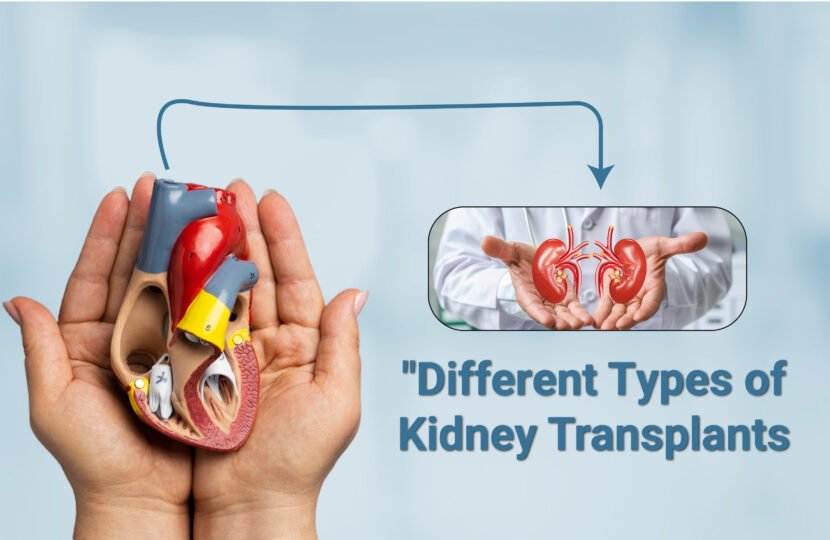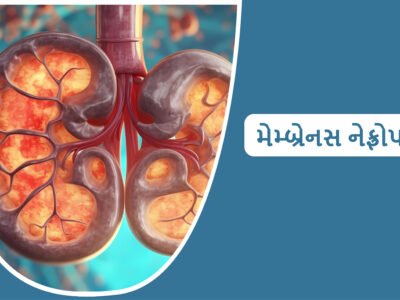Kidney transplants have become a life-saving treatment for people suffering from end-stage renal disease (ESRD) or severe kidney failure. Depending on whether you are in this category, there is some important information that you need to understand regarding the various kidney transplants. Each has its advantages and disadvantages of Kidney Transplant and application depends on the overall condition of the given patient and some other circumstances. To help further your decision-making about the particular operations for types of kidney transplants, you will acquire more information in this guide.
Understanding Kidney Transplants
In a kidney transplant, the healthy kidney from a different person or a cadaver is grafted to replace the poor renal organs in the patient. This transplant is needed when a person’s kidneys do not function as they should do – to filter waste products and achieve an appropriate balance of electrolytes in the blood.
When it comes to decisions relating to organ transplants, Dr Ravi Bhadania, the kidney transplant Doctor in Ahmedabad, states that patients should go for the right type of kidney transplant surgery after a careful assessment of the patient’s medical characteristics, their lifestyle and their preferences.
Types of Kidney Transplant Surgery
There are three primary types of kidney transplants:
1. Living Donor Kidney Transplant
2. Deceased Donor Kidney Transplant
3. Preemptive Kidney Transplant
1. Living Donor Kidney Transplant
In the context of living donor kidney transplants, a kidney from a healthy living person is transplanted to the recipient. It can be any of the kin, friend or any stranger who wakes up one day and decides to be a donor. This types of kidney transplant surgery offers several advantages: This type of transplant offers several advantages:
- Higher Success Rates: The kidney which is sourced from a living donor is generally healthier and more functional and thus outcome is better in the long run.
- Shorter Waiting Time: The use of Com’s and brains has the additional benefit that the patients do not have to wait for a so-called deceased donor kidney, which can help them to save a lot of time for dialysis.
- Better Compatibility: In the majority of cases, the living donors are close family members of the recipient; this increases the chances of the organ to be compatible hence less likelihood of rejection.
Living donor transplants give this advantage in that the surgery can be scheduled at the most opportune time for both the donor and the recipient as noted by Dr. Ravi Bhadania. However, a willing or suitable living donor is not always available in a kidney transplant programme, and this will require the program to look for other sources.
2. Deceased Donor Kidney Transplant
Deceased donor kidney transplants involve receiving a kidney from a person who has recently passed away and whose family has agreed to donate their organs. There are two types of deceased donor transplants:
- Standard Criteria Donors (SCD): Oftentimes they are young people and have never been diagnosed with kidney disease and such people die due to other diseases that ignore kidneys. The quality of the kidneys is generally well preserved in most of the SCDs and as such holds a very promising factor of performing exceedingly well on transplant.
- Expanded Criteria Donors (ECD): They may be older donors or the kidneys are removed for certain diseases that would reduce the lifespan only of the kidney to be transplanted. But an ECD kidney is still a safe option and it could be used in the following conditions: if the recipient is older and, in rare cases, the patient has to wait long, for a standard criteria donor kidney. Deceased donor transplants are more common than living donor transplants, but they come with certain challenges: DDT is more frequent than LDT; however, the problems that threaten the success of an organ transplant are associated with DDT.
- Longer Waiting Time: For this reason, the waiting it can even take several years as it depends on some factors, including blood type, among others.
- Unpredictable Timing: These kinds of transplants call for organs; therefore, the recipients ought to be ready to undergo the operation at the slightest provocation.
3. Preemptive Kidney Transplant
It is done if the patient has end-stage renal transplant types but the kidney transplant is done early before the patient begins with dialysis. This option is suitable for patients who are diagnosed with chronic kidney disorders and are fully aware that they will require a transplant in future. The advantages of a preemptive transplant include:
- Avoiding Dialysis: Dialysis is not a painless process and often may also have some stressful toll on the patient’s emotional health. Fortunately, patients are able to spare themselves this stage by choosing a preemptive transplant.
- Better Outcomes: Studies have brought out evidence that prove that patients who receive preemptive transplants are likely to have improved prognosis than those who are only transplanted after commencing dialysis.
- Improved Quality of Life: There are very many advantages for patients who do not require dialysis especially on the aspect of quality of life, they are able to go about their usual activities without much hindrance.
Choosing the Right Type of Kidney Transplant
Selecting the most appropriate types of kidney transplant depends on several factors, including:
- Patient’s Health: Issues such as patient’s general health and the stage of kidney disease will be used to decide the kind of transplant to perform.
- Availability of Donors: Whether there is a compatible and suitable living donor, who is ready to offer a part of his/her body or whether the patient is in the list of patients waiting for a deceased donor.
- Urgency: In some cases this may be a specific condition of the patient that is getting worse, the speed of which may make the transplantation to require the use of a deceased donor kidney.
- Compatibility: The compatibility of the donor and the recipient have to be well achieved to avoid rejections of the organ to ensure the long term function of the transplant.
Conclusion
Kidney transplants are a second chance for patients who have end-stage renal disease or kidney failure. Knowledge of Categories of KT Living donor, Deceased donor and Preemptive will help promote knowledge to patients and families on how to handle a certain sickness. Types of kidney transplant surgery are reeled out with their advantages and limitations, and it falls on a competent transplant Doctor like Dr Ravi Bhadania to determine the course of action.
Whether you are thinking about getting a kidney from a living donor, may be waiting for a cadaveric donor kidney or are contemplating a preemptive transplant; having your facts right and being ready for the marathon ahead of you can make a world of difference in terms of your quality of life and the outcomes of your transplant. Dr Bhadania and his team understand the needs of every patient who is going through the processes of types of kidney transplant surgery and ensure that patients get the best.


